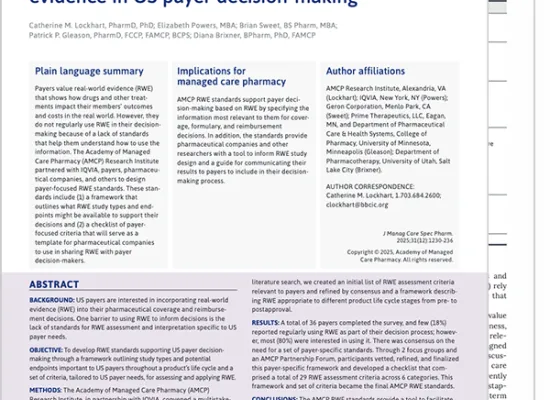
JMCP Outsert - ALS
Amyotrophic lateral sclerosis (ALS) is a rare, rapidly progressive, and fatal neurodegenerative disease characterized by loss of motor neurons in the brain and spinal cord. The etiology of ALS is unknown, however it is thought to be due to a combination of genetic predisposition, environmental exposures, and agingrelated dysfunction. The clinical presentation of ALS varies depending on which motor neurons are affected. ALS commonly presents with localized weakness that progresses to muscle paralysis, respiratory failure, and death.
Additionally, approximately 30% of patients develop some form of behavioral impairment. In the United States, it is estimated that up to 32,000 people are living with ALS. The greatest risk factor for developing ALS is age, with the highest prevalence of symptom onset occurring between 55 and 75 years of age. The average life expectancy is two to five years after symptom onset and as the disease progresses there is significant caregiver burden. Current treatments for ALS are largely focused on supportive care. Typically, treatment includes a combination of therapies along with durable medical equipment (DME) to help preserve quality of life as long as possible.
Featured News & Resources
See Full CalendarUpcoming Events
AMCP offers a wide variety of educational opportunities, from events and webinars to online training.








